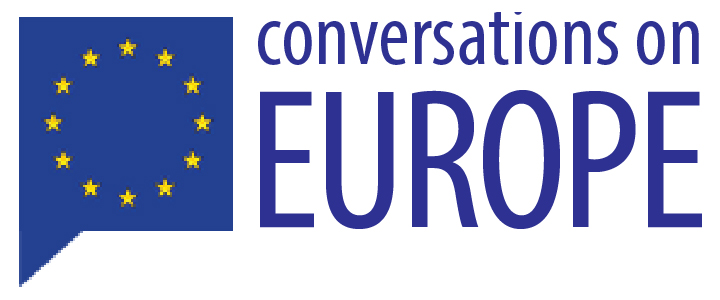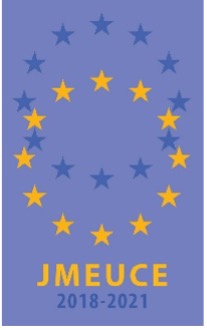After careful consultation with our affiliated faculty, the European Studies Center has announced its organizing theme for the 2021-2022 academic year: Recovering Europe. The theme will inform the Center’s slate of visitors, symposia, conferences, videoconferences, and pop-up courses for the year and we welcome collaborations with affiliated faculty and departments across campus.
Year of Recovering Europe (2021-2022)

2021-2022 Year of Recovering Europe Events
Featured Events:

This year’s Conversations on Europe virtual roundtables responded to the theme. In the Fall semester, sessions explored economic and public health issues related to Europe’s recovery from the pandemic. In the Spring semester, sessions will considered attempts to reckon with and recover from the enduring legacies of European colonialism. The series was bookended by sessions devoted to important national elections impacting Europe and its recovery. Recordings of each the sessions, as well as suggested readings and resources, area available at the Conversations on Europe webpage.
September 21 – “Will the Center Hold? What to Expect in the German Federal Election” in collaboration with the Jean Monnet in the USA Network #JMintheUS Register
October 19– “Free Movement in the Time of COVID: The Economics and Ethics of Digital Vaccine Passports” with the Center for Bioethics and Health Law and Pitt Cyber Register
November 16 – “An Uneven Recovery? Health Outcomes and Economic Impacts Across Europe” with the Center for Russian, East European, and Eurasian Studies and the Center for Bioethics and Health Law Register
December 7* – “COP26 and the European Green Deal: Europe's Response(s) to Climate Change” Register
January 18 – “Reckoning with the Past I: Decolonizing the Curriculum in Europe” part of the Critical Area Studies of Europe Initiative, in collaboration with Pitt's Global Studies Center Register
February 15 - “Reckoning with the Past II: Decolonizing European Museums” a Jean Monnet Center of Excellence Roundtable Register
March 15 - “Reckoning with the Past III: Reparations to the Victims of Colonial Violence” Register
April 19 - “The French Election - What is at Stake?” in collaboration with the Jean Monnet in the USA Network #JMintheUS Register
Series Co-sponsors:
Miami-Florida Jean Monnet European Center of Excellence, Florida International University; EU Center at the University of Illinois at Urbana-Champaign

In the wake of the 2020-21 academic year, which was indelibly shaped by a global pandemic and social justice movements, the theme of Recovering Europe provides space for topics that address recovery from a variety of angles, including health, economy, social justice, climate change, and politics. Throughout the year, the ESC will offer and support interdisciplinary programming that addresses European recoveries: past, present, and future. Moreover, in recognition of a larger multi-year initiative involving various units on campus, activities will also address themes of reckoning and recovery through Decolonizing European Studies. We thus encourage faculty and graduate students to interpret the theme of “Recovering Europe” broadly and to be creative in imagining possible collaborations. Recovering Europe invites comparative and trans-regional approaches to understanding Europe. Recovering Europe encourages challenging assumptions and identifying ways to reimagine and re-conceive the history of the continent within world history. Topics relevant to the theme could explore issues including, but not limited to, the arts, culture, public health, education, law, discovery and invention, wartime trauma and peacebuilding, politics, economics, demography and society, and/or foreign policy.
There are two ways to participate in creating programming.
1. The ESC invites Affiliated Faculty to submit proposals for activities related to the theme of “Recovering Europe.” There is no deadline for these proposals, ideas will be considered at any time during the 2021-22 academic year for activities that will be carried out during that same academic year. Please contact Dr. Spoon or Dr. Delnore at any time with a one-page narrative description of your project. Please also include a proposed budget which indicates any other units that may be able to provide support.
In particular, the Center has funding for and is seeking proposals for:
- Visitors (either remote or in person) participating in Campus Lectures and Symposia
- Student-driven events around the theme
- “Pop-up courses” (one-credit) related to the theme (in any department/discipline; funding will provide supplemental, course overload pay). “Pop-up” courses allow students and faculty to explore emerging or newsworthy topics in an academic setting, but through a variety of flexible formats to suit different schedules.
- Film screenings, readings, or art exhibits
- Faculty-directed student research projects allowing Pitt undergraduates to pursue original research on topics related to the theme. (Funding can be used to pay for supervision of a credit-bearing experience OR to compensate students for their work.)
2. As a part of the broader Year of Data and Society, the Office of the Provost is offering to provide matching funding of up to $5,000 for approved projects (website in development). To complement these funds, the European Studies Center, in partnership with UCIS and through its Jean Monnet Center of Excellence Grant, is pleased to be able to provide small grants that can be used toward the portion of the funds needed to access Provost Matching funds. ESC funds must be used in conjunction with other support to meet the 50:50 matching funds required by the Office of the Provost. Award amounts will vary based upon the project proposed and its relevance to the overall theme of Recovering Europe.
Faculty with projects that include Europe in relation to the Year of Data and Society are encouraged to contact ESC Director Jae-Jae Spoon (spoonj@pitt.edu) and/or Associate Director Allyson Delnore (adelnore@pitt.edu) with your idea to explore the ways in which the ESC can best contribute. Proposals for Year of Data and Society funding will be accepted on a rolling basis until the funds run out. After consulting with us, a one-page write up of the ESC’s proposed role in the larger proposal to the Year of Data and Society should be submitted at least then (10) days prior to your planned submission date for Provost funding.
ESC Affiliated Faculty were invited to attend focus groups in December and January. Discussion during those sessions generated ideas for topics, which were then sent out to the entire list of 160 affiliated faculty for their vote. We received responses from over half, with the majority preference for “Recovering Europe.” Thanks to all who took the time to give feedback. If you are not currently an ESC affiliated faculty member, but wish to be, please let us know.
Send an email including a brief description of the proposed activity and how it relates to the theme, as well as a budget outline to Drs. Spoon and Delnore. We look forward to working with you.

 Funding for the ESC’s “Year of” initiatives are provided with co-funding from the Erasmus + Programme of the European Commission through Pitt’s Jean Monnet EU Center of Excellence Grant.
Funding for the ESC’s “Year of” initiatives are provided with co-funding from the Erasmus + Programme of the European Commission through Pitt’s Jean Monnet EU Center of Excellence Grant.
